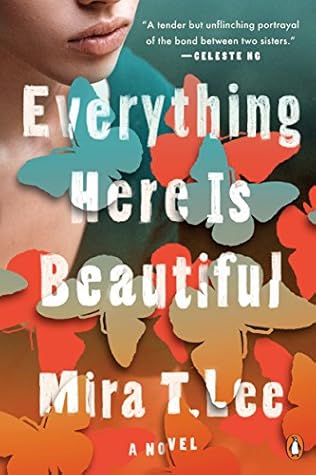More on this book
Community
Kindle Notes & Highlights
Our mother might’ve said this: that immigrants are the strongest, that we leave our homes behind and rebuild. Everywhere we go, we rebuild.
A delusion will not go away by reasoning and therefore needs no discussion.
Anosognosia. Impaired awareness of illness, also termed “lack of insight.” Some part of the brain, anatomically damaged, such that it could no longer recognize its own malfunctioning. It wasn’t an easy concept to grasp.
Meds didn’t necessarily revert a person to normalcy, though they might mute the symptoms. Some patients grew attached to their delusions, some ditched the meds as soon as they felt better, and the nasty side effects were for real.
It is impossible to inject logic into an irrational mind. Yet somehow, she could not stop trying.
Each of these psychotic episodes was toxic to the brain, resulted in cognitive decline, and it was impossible to predict how much of a person might be irretrievably lost each time. It would be a long, long road.
there was no cure, only management and vigilance. Relapses were likely. Routine was key. Sleep. Stress management. Of course, the medications.
But the truth is, I’m still not sure how to tell what’s real—because when you’re inside it, it’s your reality, and if your own perception of the world isn’t valid, then what is?
I wonder, to conduct one’s life as a Chinese life instead of just a life? I speak Chinese, I cook Chinese food, practice tai-chi on occasion and drink oolong tea, but to flaunt one’s authenticity seems terribly gauche. I’m human first, aren’t I? Aren’t we all?
I mention I’ve been through a few rough patches lately, and outcomes for my “condition” improve with minimized stress. It’s what the doctors always say.
querencia. It refers to that place in the ring where a bull feels strongest, safest, where it returns again and again to renew its strength. It’s the place we’re most comfortable, where we know who we are—where we feel our most authentic selves.
That first hospital stay, I was a compliant patient, a Sweet Asian Doll, and for this I was branded with a Severe Lifelong Mental Illness. Later, I would be told I had a twenty percent chance of maintaining a full-time job, a twenty-five percent chance of living independently, a forty percent chance of attempting suicide, a ten percent chance of succeeding. I was twenty-six years old.
She focused on wellness: daily routines, proper nutrition, exercise, sleep and self-care.
I watched Chaka and Noemie in the store, enthralled by their baby boy. How he slept, how he nursed, how he cried to be understood but never judged or demanded explanations. I could learn. I could love. Like the rest of humankind. I only needed to hold my baby in my arms.
There’s a word for this in Portuguese: saudade. It’s not exactly nostalgia, there’s more of a longing in it, for a feeling or way of life that may be impossible to recapture—that may or may not have even existed in the first place. “An indolent dreaming wistfulness” is how I’ve seen one writer describe it. Now that’s a great word.
These are her days: cooking, cleaning, harvesting fruits and vegetables from the earth. She has nowhere else to be, nothing else to achieve, only chore after chore after chore.
Why should she have to explain to him, when he will never understand? “Writing is part of who I am,” she says. In her voice, thin and sharp, a portent of danger, like a hairline crack in a glass.
“I guess it’s something I’ve always done. And I like it. A lot.” How to explain? “It’s hard to just stop.”
“Ay, Chinita,” he says, smiling. “You are not ready. When you are ready, you will let go, find the ties that bind. Only then can you find the path.”
Then it comes to her. I gave up love for a baby, traded my soul mate for a child.
velleity. The weakest form of volition. A mere wish, unaccompanied by an effort to obtain it.
Only later, much later, would he understand. Later, in hindsight, they would come together on this: to wonder when it had become impossible to distinguish which parts of Lucia fell under her own jurisdiction and which belonged to her illness.
He studied her face, wondered how much she knew. Or if what she said was true, or if it was only that she was growing up and saw the world differently now.
saudade. A vague longing for something that cannot exist again, or perhaps never existed.
People say things, people do things, these two are not the same, I know that.
But now, like this, I think love is just romantic way of explaining selflessness.
“Take care of yourself,” I said. And in that moment those words meant no more, no less, only a simple expression of love.
How trite, but true: things change. Some all at once, some over a lifetime.
I knew no clear answer to this question. She felt isolated, maybe. Constricted, misunderstood. Lucia, always chasing some happily-ever-after; she needed to be free. Or was she simply childish, self-centered, irresponsible? For a long time I saw her as the latter, I admit.
The majesty of the forest. The light snow would’ve offered a peaceful idyll—nature is a comfort, she always said.


